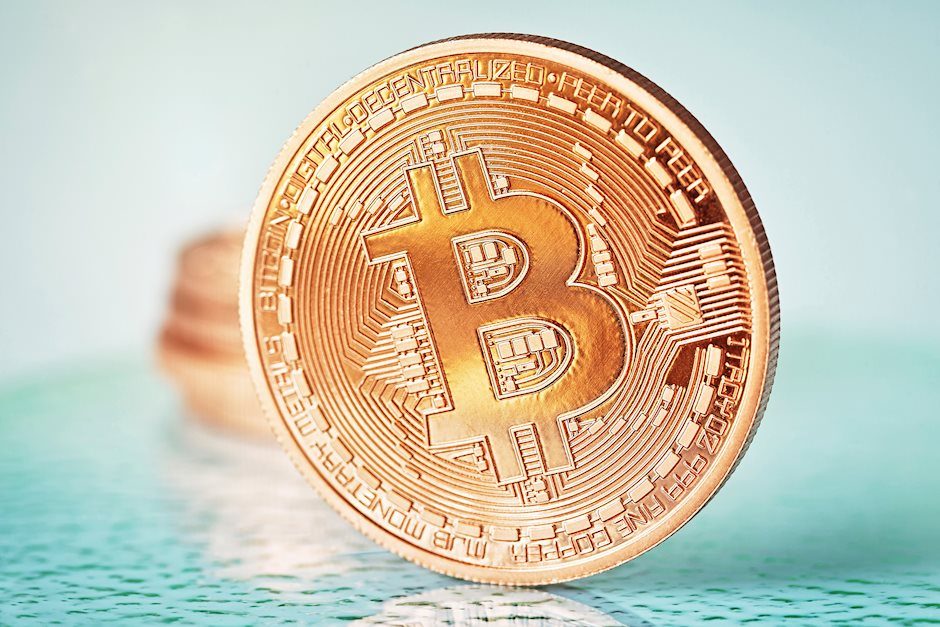Bitcoin shows that fundamental principles need to be revised

Since the day, the bitcoin cryptocurrency has emerged, it has been strongly criticized among others by great economists, professionals, and investors around the world. Some of the statements made by these people were:
Nouriel Roubini has stated that “Most Bitcoin investors are retail suckers who are clueless and financially illiterate” also “it is the mother of all bubbles and is also the biggest bubble in human history....”
Former PayPal CEO Bill Harris said Bitcoin is the biggest scam in history.
Vice-chairman of Berkshire Hathaway Charlie Munger said: “It’s just disgusting. Bitcoin is noxious poison.”
Francois Villeroy De Galhau Governor of the Bank of France stated “Bitcoin is in no way a currency, or even a cryptocurrency. It is a speculative asset. Its value and extreme volatility have no economic basis, and they are nobody’s responsibility.
F. William McNabb the former chairman and chief executive officer of Vanguard said about cryptocurrency: “I think it's going to end very badly, I really do. Some people are going to lose a lot of money and there’s no reason that the prices should be going up at the rate that they're going up. There’s no fundamental economic reason.”
Jeremy Grantham chief investment strategist of Grantham said: “Having no clear fundamental value and largely unregulated markets, ...... makes this more than anything .......the very essence of a bubble.”
Andreas Treichl, CEO of Erste Group Bank AG said: “....central banks lose control, and they are not going to let this happen. At some point in time, maybe at $20,000, $25,000, $30,000, somebody will say ‘Stop!’”
Joseph Stiglitz Nobel prize-winning professor of economics said: “Bitcoin is successful only because of its potential for circumvention, lack of oversight, so it seems to me it ought to be outlawed. It doesn’t serve any socially useful function.”
Tidjane Thiam the former Chief Executive Officer of Credit Suisse Group AG stated: "....the only reason today to buy or sell Bitcoin is to make money, which is the very definition of speculation and the very definition of a bubble.”
Warren Buffett said: “People get excited from big price movements, and Wall Street accommodates … You can’t value Bitcoin because it’s not a value-producing asset.” It is a “real bubble.”
Larry Fink Chairman and Chief Executive Officer of BlackRock said: “Bitcoin just shows you how much demand for money laundering there is in the world.”
Mike Novogratz, former macro manager, Fortress investment group said: “This is going to be the largest bubble of our lifetimes ….”
Jamie Dimon Chairman and Chief Executive Officer of JPMorgan Chase said: “It’s a fraud.” If a JPMorgan trader began trading in Bitcoin “I'd fire them in a second. For two reasons: It’s against our rules, and they’re stupid. And both are dangerous.”
Economics professor Nouriel Roubini, one of the strongest critics of bitcoin, insists that the currency has no intrinsic value. Just before Christmas, he told Yahoo Finance: "We are close to the point where the bubble is about to fail." " The price of bitcoin is totally manipulated by a bunch of people, by a bunch of whales. It doesn’t have any fundamental value. "
All these warnings have been made by respected people who have excellent knowledge and experience, and since they refer to fundamental principles, they are in many ways correct. However, they may be somewhat unaware of the fact that, at certain points in human economic history, the Fundamental Principles need to be revised, because the ways in which great Values are defended are evolving rapidly.
When this happens, new ways must be added to assess the new shape of the Fundamental Principals. If we are really going through this particular moment in history, what we need is a strong faith to explore the mystery of how great values such as the value of currencies are defended and how fundamental principles are shaped. Regarding Bitcoin and cryptocurrencies, this view is supported to some extent by the following statements:
Christine Lagarde President of the European Central Bank and the former Managing Director, International Monetary Fund stated: “Not so long ago, some experts argued that personal computers would never be adopted and that tablets would only be used as expensive coffee trays. So, I think it may not be wise to dismiss virtual currencies.” Countries with “weak institutions and unstable national currencies” may see growing use.
Mark Carney, a former Governor of the Bank of England said: “For many reasons, the crypto-assets in your digital wallets are unlikely to be the future of money ... But that is not meant to dismiss them. Their core technology is already having an impact. Bringing crypto-assets into the regulatory tent could potentially catalyze innovations to serve the public better.”
Benoit Coeure who was a European Central Bank Executive Board Member said during a Davos panel: “We need better cross-border payments ... because it’s good for development, it’s good for financial inclusion.” “So Bitcoin can help us, it can pay us a service by forcing us to upgrade our systems. That’s a positive lesson.” The international community still needs to understand and “control these gateways between the shadow-currency universe and the regular financial system.”
Jurrien Timmer. Director of Global Macro at Fidelity Investments said: Digital currency is “disruptive, it has a lot of potential but that doesn’t tell us a lot about what these actual instruments are worth ... Even the insiders in that industry don’t really know where it’s going and it’s going to take some time. And for the average investor, you know, buyer beware because you need to do your homework and it’s tough; there’s a very high learning curve to figure out exactly what this all means.”
Kyle Bass, Founder & Chief Investment Officer, Hayman Capital Management; said: “I think it will be an asset class that will work overtime. I’m not sure how to value it yet, I really have no idea ... I think there’s a digital gold rush that’s gone on. I think a whole bunch of people is going to lose a lot of money. These ICOs? You’re going to see a bunch of them go completely broke. A bunch of them are frauds, and that’s going to be problematic for all the people that just rushed in. And so I feel like it’s a bit of a mania at the moment, but I think in the long term, it’s a viable asset class.”
Bitcoin has probably been criticized more than any other financial product in recent years. The criticism that is pointed, among other things is that the cryptocurrencies are unnecessary for the proper functioning of the economy and the markets. However, supporters of Bitcoin claim that cryptos defend the Values that represent the currencies but in a different way. If so, then Bitcoin becomes useful as a new way of defending the values of a currency and leads to new ways of evaluating the fundamental principles of currencies.
In fact, cryptocurrencies defend the value of a currency based on the decentralization architecture, which is opposed to the fundamental currency architecture as we know it today, which is controlled by a central institution such as the Central Bank. It is true that a decentralized system of currencies undermines the ability to control currencies, and therefore can more easily serve lawlessness. But the creators of this architecture, have introduced cryptocurrencies not necessarily to avoid controls. What they are looking for is a more holistic and global approach to currencies in which potentially anyone could have a say in the process and evolution of currencies. That is a different approach to defend the value of a currency.
Furthermore, Bitcoin uses an open-source protocol which means that the use of the software is free and available in all countries of the world. This means that it supports transparency, which is one of the main reasons why Bitcoin has become so popular while defending the value of the currency. Other reasons for its popularity while defending the value of the currency are:
-
The integrity and transparency of the traded information.
-
The robustness of the network from malicious attacks.
-
The planned limited production of bitcoins.
-
The protection provided by cryptographic algorithms used against network malware.
All the above constitute that bitcoin defends the values of a currency in a different way which means that leads to new ways of how to be assessing the fundamental principles of currencies. This does not mean that the fundamental principles of currency valuation that are still in force today are being abolished. They were just supplemented with something else. And as humanity seems that passes to the era where the ways the Values are defended are rapidly evolving, it is needed to ADD new approaches to estimate the fundamental principles. This suggests that the dilemmas of the type, EITHER this OR that, become obsolete. Everyone has a place. In other words, currencies AND cryptocurrencies could have a place.
Authorities and senior economists are sounding the alarm about cryptocurrencies, and to some extent, they are doing well. However, as the values of currencies are defending in different ways the approach of how to assess fundamental principles on currencies needs revision.
As we are acting in the fourth industrial revolution all entities are looking to find the ability to formulate ways to defend values. Technological developments beginning to give all people in the world this opportunity by using new approaches. So, even if the crypto is a bubble, if that bubble bursts, something else will be born because cryptocurrencies defend the value of currencies with a new approach.
What is needed is faith. If the institutions will trust the new ways of how the values of currencies are defended, the result is likely to be remarkable. After all, currencies, like anything else are sustainable when they defend their value and especially if concern people all over the world. Cryptocurrencies seem to meet these criteria: everyone in the world has access to a common currency that defends its value using methods different from the conventional ones, while everyone can participate in the new approach of the process of evolution of these currencies. This probably entails that even if cryptocurrencies could somehow, tomorrow magically disappear, many more would be born the day after tomorrow.
Author

Nikolaos Akkizidis
LegacyFX
Mr Nikolaos Akkizidis is an economist, with 20+ years of experience in multiple roles in the financial sector.





